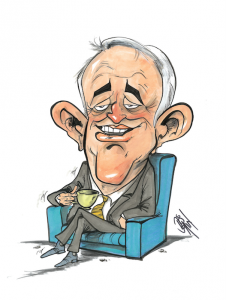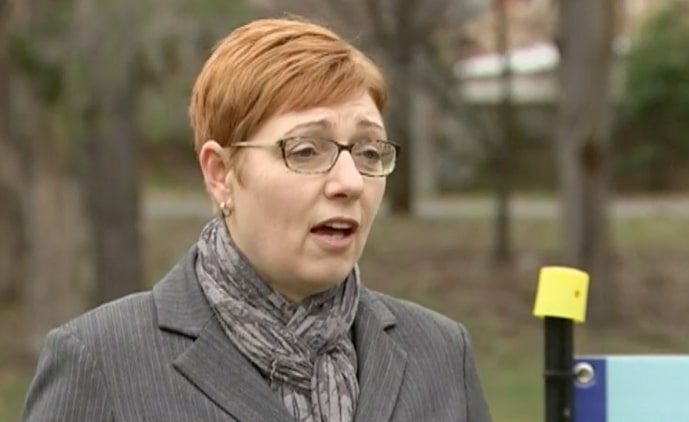“CHOPPERGATE” cost Bronwyn Bishop the job of Speaker of the House and this month Sussan Ley has resigned her ministry over misuse of parliamentary entitlements. Others have been caught up in one way or another.

Former Treasurer Joe Hockey’s “age of entitlement” has been shown to be psychological projection. It is not the poor, those on welfare or the disadvantaged that really believe they are “entitled”; it is those who see themselves as born to rule.
The whiff around Federal parliamentary entitlements should have been addressed many times – but for some (unknown) reason has always slipped on to the backburner.
An examination of Federal MPs’ entitlements is difficult to interpret on a comparative basis. Senators and members have different needs that cover staff, travel, accommodation and many of the day-to-day operational requirements of the office. Some members have huge country electorates, senators play different roles on committees and others are ministers with national and international responsibilities.
However, the whiff remains. Credit goes to Malcolm Turnbull, a Prime Minister who has finally stood up and said he’s committed to tackle the issue. Credit is also due to Opposition Leader Bill Shorten for his immediate offer of support and co-operation.
The support of the crossbench members, including Greens Leader Richard Di Natale and others such as Nick Xenophon, indicate the parliament is finally ready to work together to address the issue.
They could learn a few lessons from the ACT Legislative Assembly.
The Assembly has an ethics and integrity adviser as well as a commissioner for standards. The former provides advice on the request of MLAs regarding any question that might appear in the “grey area” between ethical and non-ethical conduct. If advice is sought and followed – there is likely to be no public backlash.
An MLA who fails to seek advice on a questionable matter, or seeks advice and then ignores it, makes themselves very vulnerable indeed. An MLA who uses the system as it is designed has a strong protective mechanism.
Although many Westminster parliaments have been using similar systems for decades, the Federal Parliament has no real equivalent position. And it is paying the penalty.
When a Minister loses their portfolio through ethical issues it is a disaster personally. However, it also adds to the community disquiet and disillusionment with all politicians. Every senator, every MP – no matter how ethical their own behaviour – is tarred with the same brush.

The ACT Legislative Assembly goes a step further. The commissioner for standards also has the power to investigate accusations of unethical behaviour.
There have been four occasions when such investigations have taken place. The current commissioner is former Supreme Court judge, Ken Crispin QC. The commissioner does not take over the power of elected members, but reports his findings to an Assembly committee. All four investigations have been published by the Standing Committee on Administration and Procedure.
The Turnbull approach has some parallels and is, at least in part, modelled on the British parliamentary system. Transparency is the first step and a positive one. Firstly the system that manages entitlements will be modernised to allow monthly disclosure of parliamentarians’ expenses in an accessible, searchable format. Secondly, there will be an independent board that includes an experienced auditor, a person with wide experience in remuneration matters, the president of the remuneration tribunal, a former judicial officer and a former MP. This body can set and review appropriate frameworks that deal with the diversity of the parliament and parliamentary roles.
The Prime Minister has made assurances that those who misuse their entitlements will be punished. However, the only way to provide confidence to this intention is to ensure there is an appropriate ability to investigate and to police. The ACT model provides a blueprint for how this might be achieved.
Losing a competent minister such as Sussan Ley on reckless personal financial decisions is a tragedy for her, for the government and for the parliament. Steps need to be taken to protect busy people from themselves and from reckless, inappropriate behaviour.
In 2017 we need to be building and fortifying our democracy. The work needs to be done quickly so it is seen and understood as amongst the best and most incorruptible in the world.
Michael Moore was an independent member of the ACT Legislative Assembly (1989 to 2001) and was minister for health.
He was named a Member of the Order of Australia in the Australia Day honours list.
Who can be trusted?
In a world of spin and confusion, there’s never been a more important time to support independent journalism in Canberra.
If you trust our work online and want to enforce the power of independent voices, I invite you to make a small contribution.
Every dollar of support is invested back into our journalism to help keep citynews.com.au strong and free.
Thank you,
Ian Meikle, editor




Leave a Reply